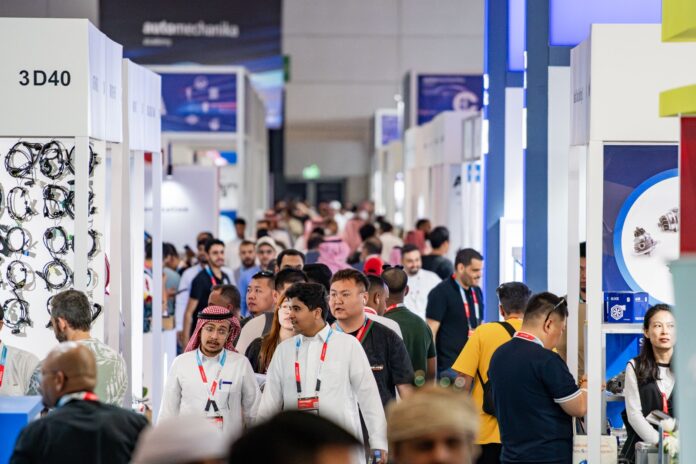Digitalisation, electric vehicle adoption, and artificial intelligence are reshaping Saudi Arabia’s automotive workforce needs
Automechanika Academy highlights the critical role of skills development in achieving the Kingdom’s Vision 2030 mobility goals
Automechanika Riyadh 2025 welcomes over 450 exhibitors and 19,000 visitors, showcasing global innovation across key automotive sectors
Riyadh, KSA: Saudi Arabia’s automotive sector is undergoing a significant transformation, driven by Vision 2030 ambitions to build a globally competitive industrial economy. According to a 2022 census, over 63% of the Kingdom’s population is under 30. Developing the next generation of talent equipped with skills in electric vehicles (EV), smart mobility, and AI-driven diagnostics is therefore a cornerstone for future growth.
This was the focus of discussion at the Automechanika Academy conference during Automechanika Riyadh 2025, where industry experts examined how innovation, digitalisation, and next-generation technologies are transforming workforce development for the future of Saudi Arabia’s automotive sector.
In a session titled “From Skills Gap to Opportunity – Future-Proofing Saudi’s Automotive Workforce – A Deep Dive into Innovation & Next-Gen Skills”, Lawrie Martin, Regional Business Development Director – Asia, Middle East & Africa, GP Strategies Corporation, outlined how Saudi Arabia can proactively build a workforce ready to lead in the global mobility landscape.
“AI is revolutionising automotive training by enabling more personalised learning pathways and increased engagement through learner-centric approaches. AI-driven platforms are increasingly being used in many industrial applications to simulate real-world scenario-based technical challenges, helping technicians gain hands-on experience,” Martin explained.
“However, what is important to understand is AI will not singularly solve technical challenges. Technical training requires critical thinking and problem-solving that AI supplements; however, it also requires knowledge retention and muscle memory from the technician to complete the task,” he added.
Martin emphasised that transitioning to EV adoption, connected vehicles, and smart mobility requires focused skills development in high-voltage systems, battery diagnostics, software systems, and ADAS calibration.
“Saudi Arabia can lead globally in next-gen automotive talent by funding investment in world-class training centres, fostering partnerships with global OEMs and workforce transformation providers, and embedding mobility technologies into technical education,” said Martin.
The Automechanika Academy continues tomorrow (30 April 2025) at the Riyadh International Convention and Exhibition Centre (RICEC), offering further discussions on the technologies and skills shaping the future of the automotive aftermarket.
Bilal Al Barmawi, CEO and Founder of 1st Arabia, licensee of Automechanika Riyadh directed by Messe Frankfurt Exhibition GmbH, said: “Empowering Saudi Arabia’s workforce with future skills is essential to realising Vision 2030. Through the Automechanika Academy, we are helping bridge the gap between today’s workforce and tomorrow’s mobility needs.”
Automechanika Riyadh 2025 continues with its largest edition, welcoming more than 450 exhibitors from over 30 countries and attracting 19,000 visitors. The show brings together global manufacturers, distributors, industry leaders, and innovators, showcasing the latest solutions across key product categories, including
Parts & Components, Electronics & Systems, Tires & Batteries, Oils & Lubricants, Accessories & Customising, Diagnostics & Repairs, Body & Paint, and Car Wash & Care.
Aly Hefny, Show Manager, Automechanika Riyadh, Messe Frankfurt Middle East, said: “The growth of Automechanika Riyadh reflects the strength and dynamism of Saudi Arabia’s automotive industry. By connecting international players with local innovators, the show is helping drive investment, knowledge exchange, and long-term development across the Kingdom’s automotive value chain.”





